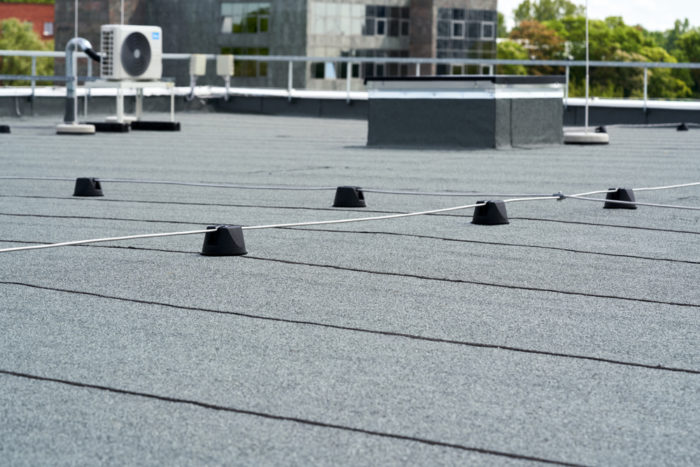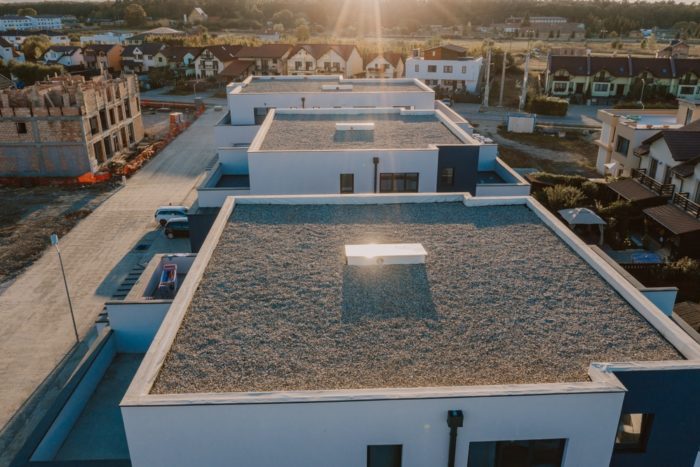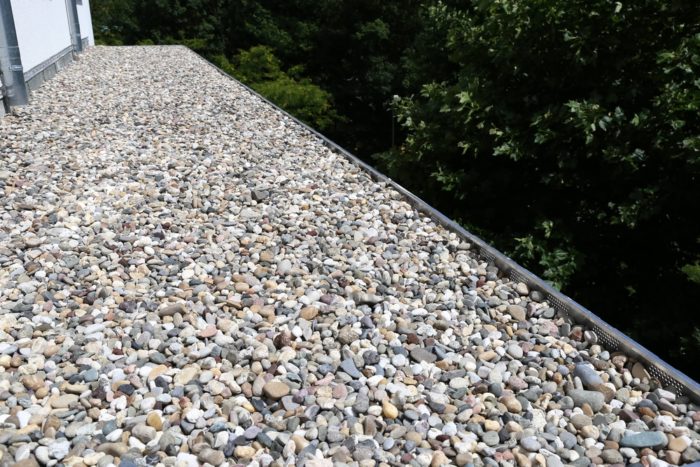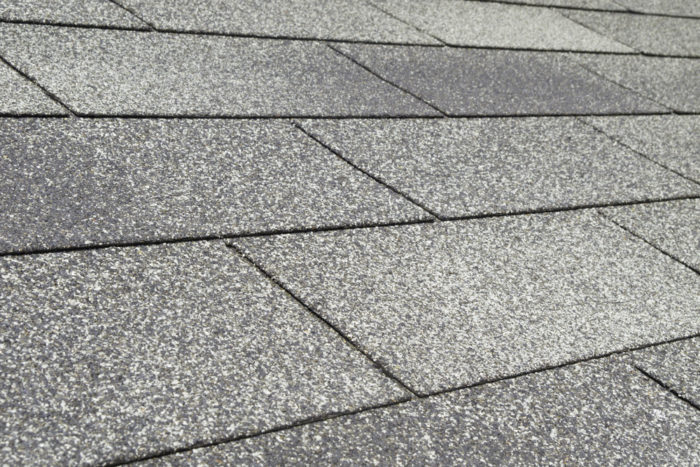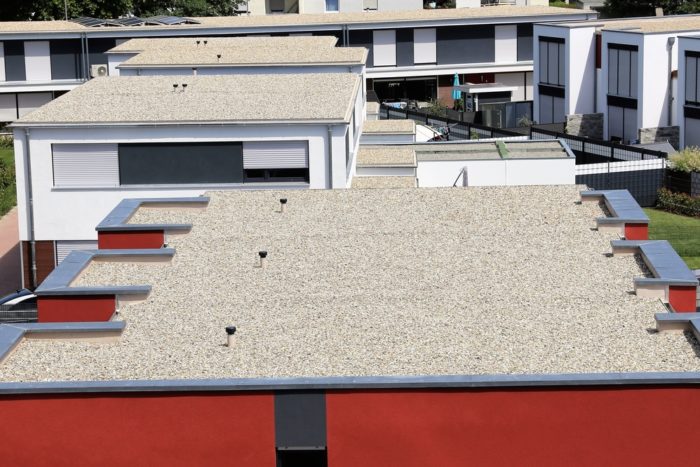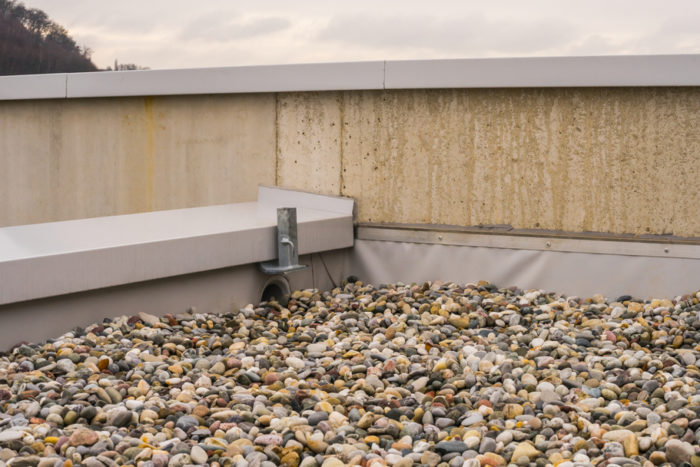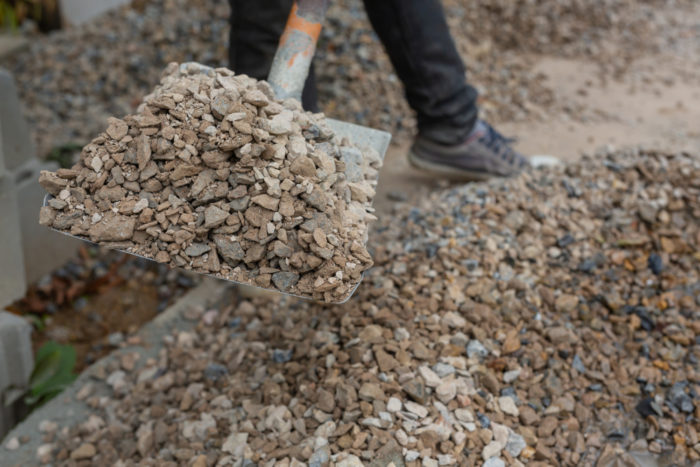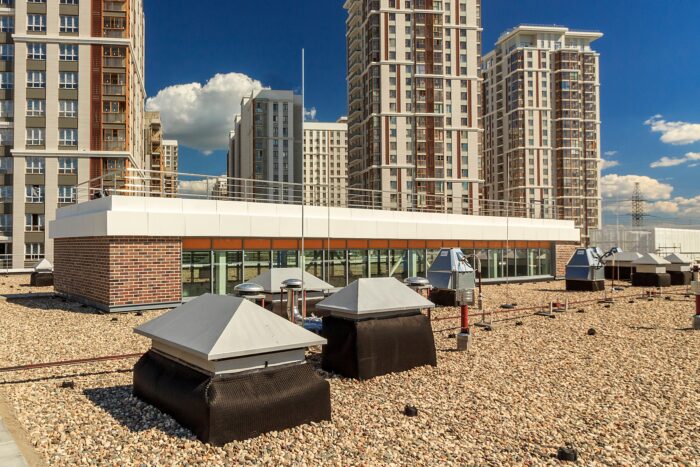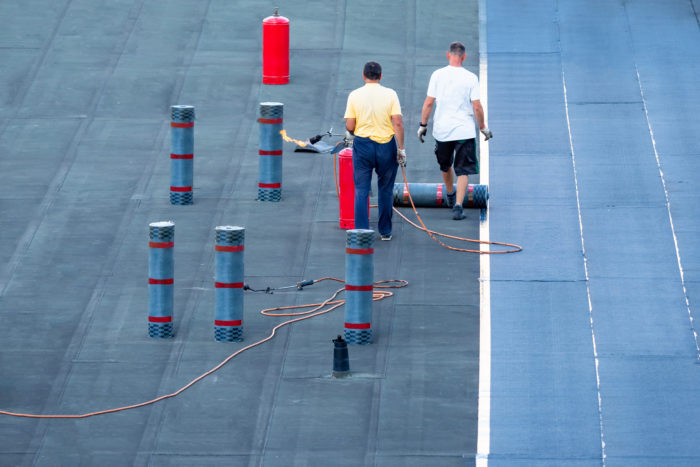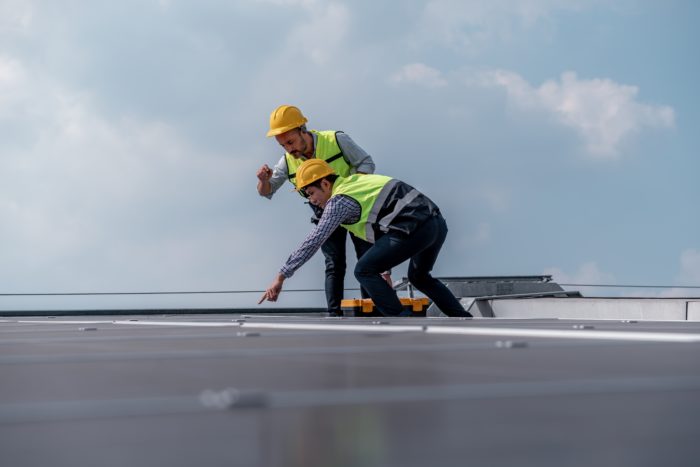There are several reasons why people might choose to build with a flat roof... Cost - Flat roofs tend to be less expensive to construct than pitched roofs because they require fewer materials and less labor. Urban Design - In urban areas…
They are often referred to as "gravel ballast." These stones serve several purposes... Protection - Gravel ballast protects roofing material and extends its lifespan. Weight distribution - Gravel on flat roofs prevents wind uplift. Heat reflection - White stones reflect…
Rocks on a roof, especially flat ones, provide protection against weather, UV rays, and can improve drainage, besides holding down the roofing material. There are several reasons why someone might choose to put rocks or gravel on their roof... Protection…
Shingles aren't used on flat roofs because they require a slope to effectively shed water; flat roofs use materials like modified bitumen or TPO (Thermoplastic Polyolefin). Shingling a flat roof is generally not recommended for several reasons... Water Drainage -…
A ballast roof uses large stones or pavers to hold down the roof membrane without using adhesive, allowing for easier repairs and maintenance. Ballast roofs offer several advantages, including... Durability - The ballast layer helps to protect the roofing membrane from…
A rock roof typically refers to a flat roof covered with rock or stone ballast to protect the roof membrane and hold it in place. Here's how a rock roof is usually constructed... Base Layer - The roofing assembly starts with…
Gravel on flat roofs serves similar purposes as pebbles, including protection from UV light, aiding in water drainage, and adding weight. Gravel is often used as a protective layer on flat roofs for several reasons... UV Protection: The gravel acts…
Pebbles on a Flat Roof Protect the roofing material from UV rays and weather, help manage water drainage, and add weight to secure the roof material. They are commonly used as a protective layer on flat roofs for various reasons...…
Flat Roof Replacement Frequency: Typically, flat roofs need replacing every 20-30 years, depending on the material and maintenance. Here are some general guidelines for the replacement frequency of flat roofs based on common roofing materials... Built-Up Roofing (BUR) - This type…
Flat Roof Maintenance Frequency: It's recommended to inspect and maintain a flat roof at least twice a year and after major weather events. Here are some general guidelines for maintaining a flat roof... Regular Inspections - Perform visual inspections of…

